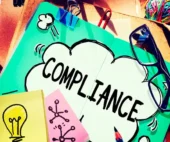The UAE’s booming real estate market has become a magnet for international investors and high-value property transactions. While this growth is positive for the economy, it also brings increased exposure to financial crime risks—especially money laundering and terrorist financing. In response, the UAE government has rolled out strict AML (Anti-Money Laundering) regulations, requiring real estate brokers, developers, and agents to implement robust compliance systems.
To keep up with these requirements, many firms are turning to AML software solutions. This technology is not just improving compliance—it’s revolutionising the way the real estate sector operates.
Why AML Compliance Matters for Real Estate Firms
Real estate businesses in the UAE are classified as Designated Non-Financial Businesses and Professions (DNFBPs) under Cabinet Decision No. 10 of 2019. As such, they are required to:
- Register on the goAML platform
- File Real Estate Activity Reports (REAR)
- Perform Customer Due Diligence (CDD)
- Screen clients against sanctions and PEP lists
- Maintain detailed records for at least five years
Manual compliance with these obligations is time-consuming and error-prone. That’s where AML software comes in.
How AML Software is Changing the Game
1. Automated Client Screening
AML software automates checks against global and UAE-specific:
- Sanctions lists (e.g., UN, OFAC, EU)
- Politically Exposed Persons (PEPs)
- Adverse media sources
This enables real-time risk assessments of buyers and sellers, helping agents avoid doing business with high-risk individuals or entities.
2. Streamlined REAR Filing
One of the biggest challenges for real estate firms is accurately filing Real Estate Activity Reports for:
- Cash transactions of AED 55,000 or more
- Deals involving virtual assets or crypto payments
Modern AML platforms, including WinGuardAML, now allow automated REAR generation and upload to goAML, ensuring firms meet their reporting obligations without delay.
3. Enhanced Customer Due Diligence (CDD)
From digital onboarding to UBO (Ultimate Beneficial Owner) verification, AML software makes it easier to:
- Collect KYC documents
- Perform identity verification
- Conduct source of funds assessments
- Apply risk-based profiling
All while maintaining an audit trail for regulatory inspections.
4. Ongoing Monitoring of Registered Customers
Compliance doesn’t end after onboarding. AML regulations in the UAE require ongoing due diligence to ensure that a customer’s risk profile remains up to date.
AML software like WinGuardAML supports this by enabling firms to:
- Regularly review and update KYC documentation
- Reassess risk levels based on customer behavior or profile changes
- Perform scheduled re-screening of existing clients against updated sanctions, PEP, and adverse media lists
This structured approach ensures that real estate firms maintain a strong compliance posture over time—even after the deal is done.
5. Simplified Compliance Management
AML software centralises:
- Document storage
- Report generation
- Task tracking
This enables firms to respond quickly to Ministry of Economy audits and ensure they are always in line with evolving AML/CFT requirements.
The WinGuardAML Advantage
WinGuardAML is built specifically for UAE DNFBPs, including real estate firms. Its features include:
- Seamless REAR and goAML integration
- Automated client screening and CDD
- Risk scoring and alerts
- Role-based user access and secure document storage
By adopting WinGuardAML, firms can cut compliance time in half, reduce errors, and avoid costly penalties.
Conclusion
As the UAE pushes toward global AML compliance standards, real estate firms must evolve or risk falling behind. AML software isn’t just a convenience—it’s a critical tool that helps property businesses meet regulatory demands, improve efficiency, and protect their reputations.
The future of real estate compliance in the UAE is digital, automated, and risk-based—and AML software is leading the way.









